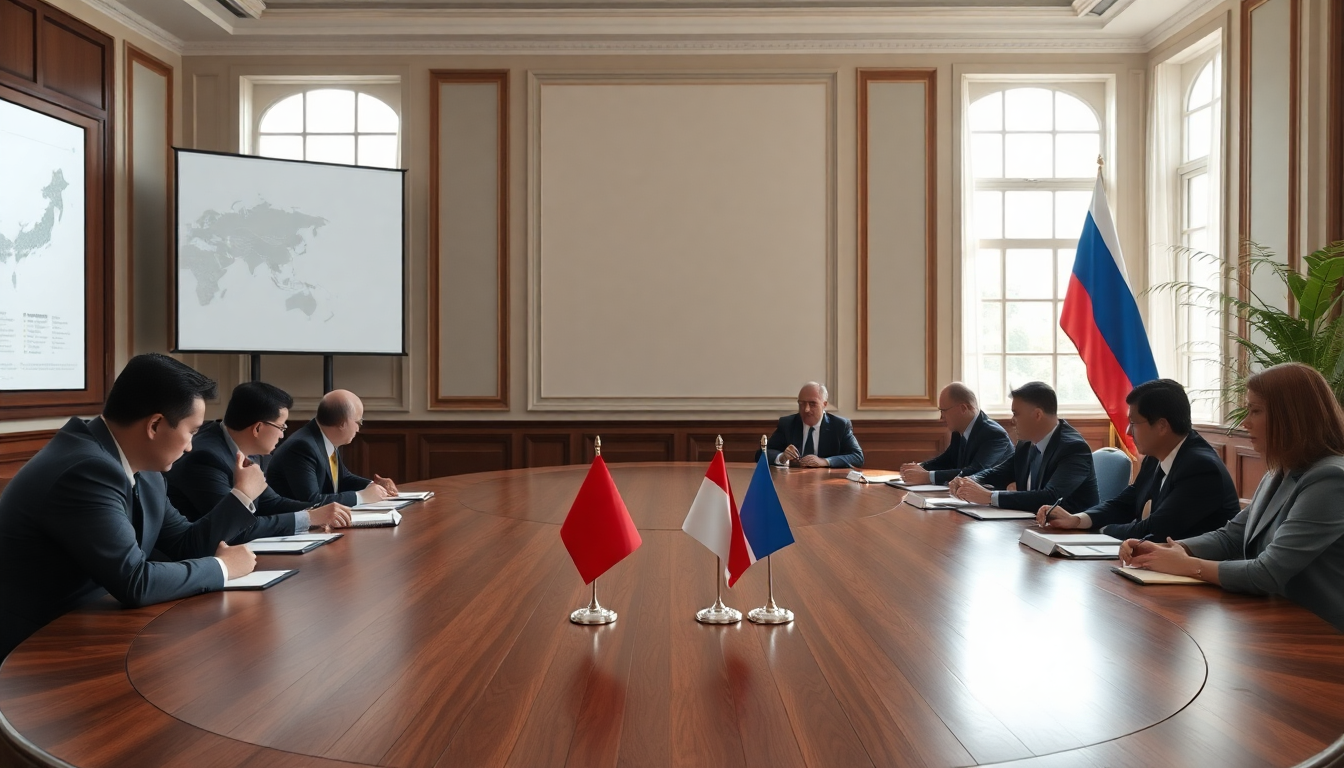Table of Contents
In a world where global dynamics are constantly shifting, the relationship between Indonesia and Russia is stepping into the spotlight. Recently, both nations have shown a strong commitment to deepening their strategic partnership. This is especially significant as Western countries attempt to isolate Russia following its actions in Ukraine. During a recent meeting in St. Petersburg, Indonesian President Prabowo Subianto made it clear that strengthening ties with Russia is a top priority.
Strategic Partnership and Economic Cooperation
During their discussions, Prabowo and Russian President Vladimir Putin signed a declaration that lays out the foundation for a strategic partnership, opening the door for cooperation across a wide range of sectors. One of the standout features of this partnership is the establishment of a hefty investment fund, worth 2 billion euros. This fund, created in collaboration with Indonesia’s sovereign wealth fund and the Russian Direct Investment Fund, aims to boost investments and enhance economic ties. Just imagine the possibilities that could unfold from this collaboration!
After the meeting, Prabowo highlighted some of the productive discussions that took place, mentioning improvements in trade, agriculture, and technical cooperation. Both leaders expressed optimism about the potential for collaboration, particularly in emerging sectors. As Indonesia works to diversify its energy sources and cut back on carbon emissions, the relationship with Russia could become vital in developing renewable energy initiatives. How cool would it be to see these two countries working together on green technology?
Geopolitical Context and Future Prospects
The geopolitical scene in Southeast Asia is changing rapidly. Indonesia is positioning itself as a neutral player amid the competition between major powers like the United States and China. Prabowo’s choice to engage with Russia—like skipping the G7 summit—signals a significant shift in Indonesia’s foreign policy, aiming to diversify partnerships beyond traditional Western alliances. This raises intriguing questions about the balance of power in the region and how Indonesia plans to manage its relationships with these global players.
On top of that, Putin’s acknowledgment of Indonesia’s recent entry into the BRICS grouping highlights a growing trend of collaboration among emerging economies. As both nations explore areas like military-technical cooperation, agriculture, and energy, the prospects for mutual benefit look promising. Indonesia’s reliance on coal for power generation presents a unique opportunity for Russia to help diversify its energy sources, especially as Indonesia considers embracing nuclear power as a viable solution. Can you imagine the advancements that could come from this partnership?
Conclusion: A New Era of Cooperation
The meeting between Prabowo and Putin marks a pivotal moment in Indonesia-Russia relations, showcasing a shared interest in enhancing economic and strategic ties. As both countries navigate the complexities of the current geopolitical landscape, their partnership could serve as a model for collaboration among emerging economies. The outcomes of their discussions and agreements will be closely monitored as they embark on this exciting new chapter, with the potential for impactful developments in trade, energy, and technology. Are we ready to witness this evolution unfold?


